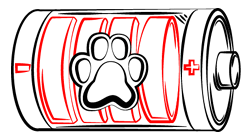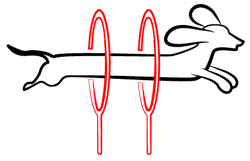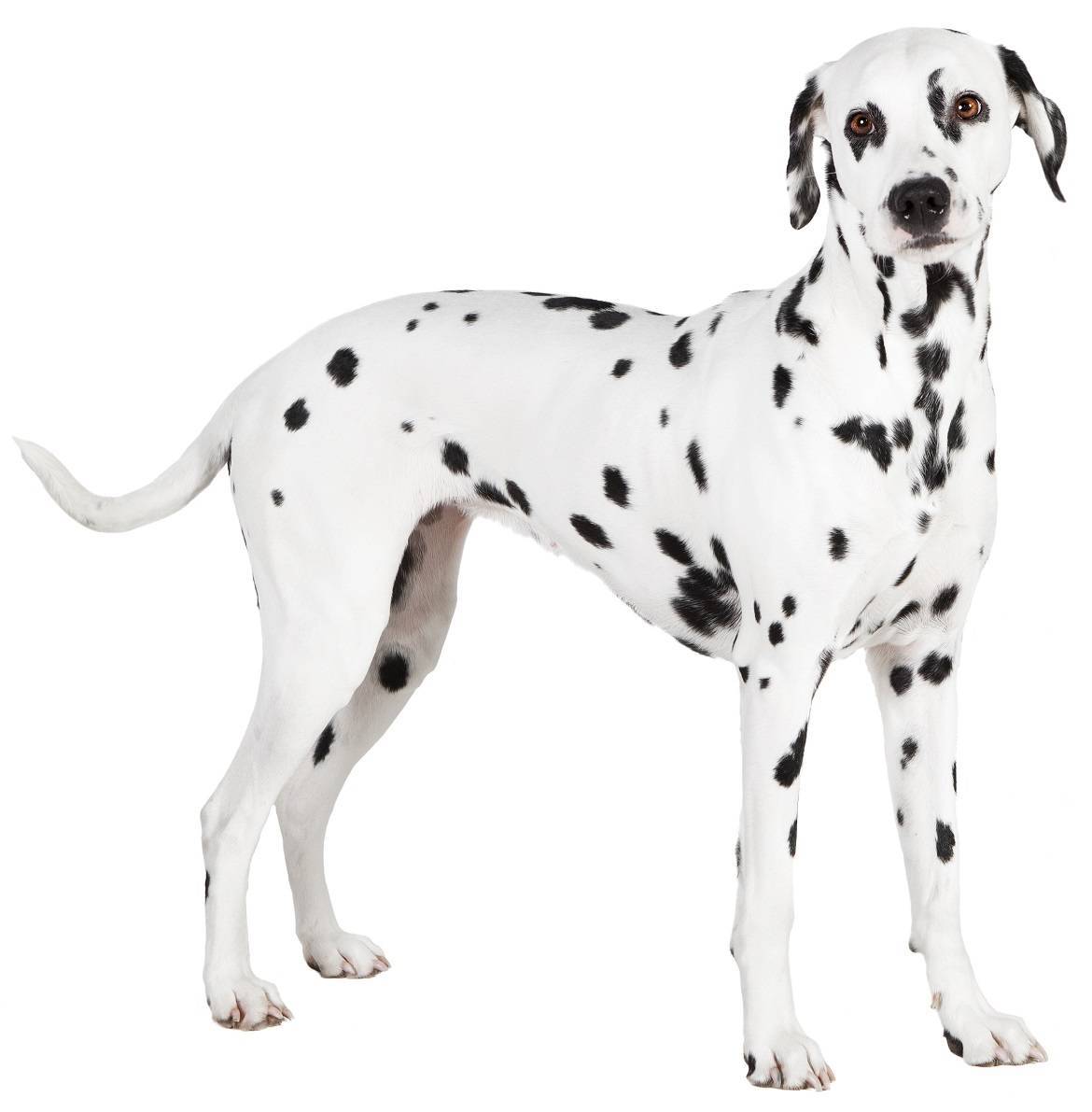
Paws ‘N’ Pups Quickview
Size
| Energy Level
| Trainability
| Paws ‘N’ Pups Rank
|
Characteristics
| Physical Characteristics: Height: 18-26” Weight: 32-72 lbs. Energy Level: High | Colors: The American Kennel Club recognizes the Dalmatian in the following colors:
|
Health & Longevity
Average Life Span: 10-13 years
Like any breed, the Dalmatian is prone to a few minor and major health issues that are specific to their genetics. These pups are also apt to develop common health conditions, such as heartworms and parvo, that could plague any canine, regardless of breed. To ensure your Dalmatian is happy and healthy for the duration of their life, keep their vaccinations updated annually. Your vet will likely send out reminders about when those vaccinations are due. The rabies and parvo virus vaccinations are two of the most crucial updates you can get to keep your Dalmatian safe and healthy.
Deafness
Usually a genetic birth defect, this condition can also occur with serious trauma or severe wax build-up and bacterial infection. Deafness is incurable, but you can train your dog to cope and understand your commands with basic sign language. It may take some more time than traditional training methods, but it is doable. Ask your vet for suggestions on how you can deal with deafness in your Dalmatian.
Bladder Stones
Resulting from a build-up of calcium and salt in the bladder, kidneys, or ureters, this condition comes with bloody urine, severe pain, vomiting, lethargy, and slow, dripping urination. Sometimes a Dalmatian can pass the stones themselves. Other, more severe cases, require surgery to release the stones.
While Dalmatians are generally a healthy breed, they do have a genetic predisposition to hypothyroidism, skin allergies, and epilepsy. If you feel that your pup is showing symptoms of any serious health condition, take him to the vet immediately. You could wind up saving his life from a serious health issue. On average, a healthy, happy Dalmatian has a lifespan of 10 to 13 years.
Temperament & Train-ability
Dalmatians are the product of their environments. If the pet owner is cruel and aggressive, the Dalmatian will mimic those actions. Whereas, if the pet owner is affection and playful, the Dalmatian will mirror that behavior. The puppy stage is crucial for these purebreds, because that stage is where they learn what they should act like and become. Proper, kind training and positive socialization are absolute musts for a Dalmatian, beginning as a puppy. If pups aren’t trained and socialized early enough, it can cause them to become possessive, overly protective, and even aggressive.
Most Dalmatians are very high-energy, so a fenced-in backyard is an ideal place for him, especially if he has grown up around another dog he can have as a companion. When socialized well, these dogs are great with other pups, so a dog park would be a good idea too. If park aren’t available close by, take him on a few long walks around the neighborhood so he can stretch his legs. Invest in a few toys for him to gnaw on and sling around while he is indoors. A bored Dalmatian can become a destructive Dalmatian pretty quickly.
Training-wise, the Dalmatian needs plenty of praise and encouragement. He thrives on positive energy, so be patient, kind, and clear with your commands. Remain happy-toned during your training sessions, even if he dismisses your instructions at first. Consistency is key to training a Dalmatian, especially one with a stubborn streak.
Grooming
Short-coated and easier to groom than most purebred dogs, the Dalmatian needs to be brushed 1-2 times a week to eliminate excess hair and dander build-up. These pups also have quick-growing toenails that need a trim every 2 weeks or so. Be careful of trimming them too short, as there are nerves that run through each toenail. Nicking the nerves results in bleeding and pain to your Dalmatian. If you are uncomfortable clipping his toenails, try filing them down instead. Or, take your Dalmatian to a professional groomer.
You should also brush your Dalmatian’s teeth 4-5 times a week, clean his ears once a week, and bathe him once a month. If you ever notice any signs of infection, such as redness, swelling, or pus, during the grooming process, consult your vet immediately.
Diet
Dalmatians are very active, energetic dogs, so naturally, they need plenty of nutrient-rich kibble to keep their mind and body healthy. These pups are also prone to becoming overeaters if given the opportunity, so establish a feeding schedule that allows them to feel satisfied throughout the day. Feed your Dalmatian 1 ½ to 2 cups of dry, high-quality dog food twice a day.
Every Dalmatian is slightly different in their nutritional needs. Ask your vet if your Dalmatian’s nutritional needs are being met with your specific feeding schedule. You should also keep plenty of water around, especially in the summer, for proper hydration. Perhaps invest in an automatic water bowl for less refills and better hydration when your Dalmatian needs it.
Looking for a Dalmatian?
 Find A Dalmatian Breeder |  Dalmatian Puppies For Sale |  Adopt A Dalmatian |
Cost
Have you decided that a Dalmatian is the perfect companion? Check your local animal shelter for a mature Dalmatian to adopt. Or, ask around to find a rescue group that specializes in finding abandoned Dalmatians their forever homes. Depending on the county and state, you could pay between $75 to $250 in adoption fees for the dog itself. Plus, any additions, like vaccinations and an initial vet check-up, which can drive the cost upwards of $500.
If you are out of luck in the shelter scene, browse our breeder’s list for a reputable, reliable, tried-and-true Dalmatian breeder. Your breeder-of-choice should care more about the pups and less about the money. They should offer health histories, purebred documentation, and plenty of must-know information about your new pup. Fees vary from breeder to breeder, but the average price for a Dalmatian puppy is between $1,000 to $1,200.
Paws ‘N’ Pups Ranking
Paws ‘N’ Pups ranks every breed out of 4 with 1 being easiest to integrate into your life and 4 being the toughest – The lower the ranking the better.
Ranking takes into account a few basic factors including cost, skill level needed, high vs low maintenance and how critical regular training is to success. Due to his overall size and energy, the Dalmatian is a 2 on the integration scale. He may be a bit of a challenge to handle size-wise, but a fenced-in backyard would accommodate him well. Or, take him to the dog park for a romp and play with other large pups.
Breeds Similar To Dalmatian
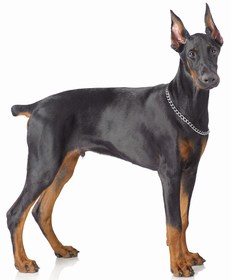 Doberman Pinscher | 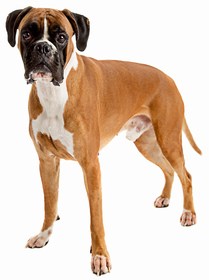 Boxer | 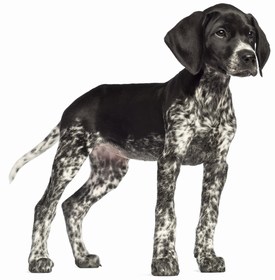 German Shorthaired Pointer | 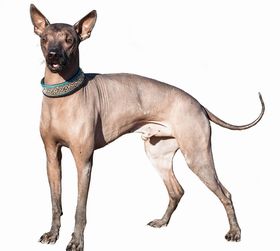 Xoloitzcuintli |


